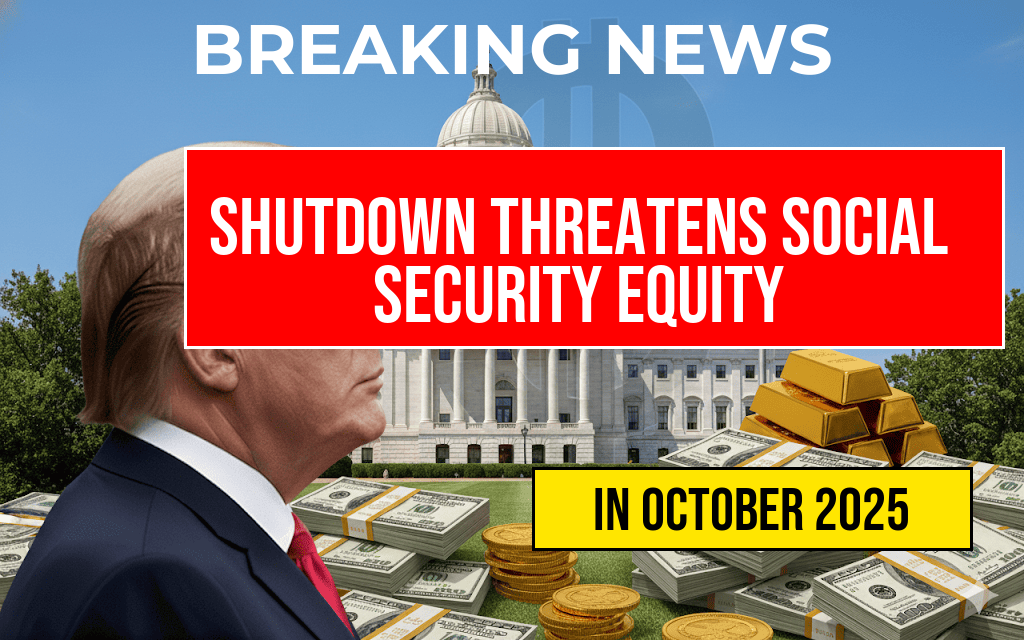The looming threat of a government shutdown has raised concerns about its potential to create a bifurcated landscape for Social Security recipients. While those already receiving benefits are likely to see continued payments uninterrupted, new applicants face the prospect of complete delays, potentially stretching months or longer. This division could deepen disparities among seniors and disabled Americans, raising questions about fairness and the long-term stability of the Social Security system amid political stalemates.
The Impact of a Shutdown on Social Security Payments
A government shutdown occurs when Congress fails to pass appropriations bills to fund federal agencies, prompting a halt in many government functions. During such periods, the Social Security Administration (SSA) typically continues operations for existing beneficiaries, since Social Security is considered an “essential” service. However, the process for new applicants, including those seeking disability, survivor, or retirement benefits, faces significant disruptions.
Established beneficiaries usually experience minimal to no interruption in their monthly payments, as the SSA prioritizes maintaining these critical disbursements. This protection stems from existing legislation and the agency’s operational protocols designed to ensure continuity of payments for those who rely on Social Security as a primary income source.
Conversely, new applicants often encounter delays in processing claims. The SSA’s staff levels are reduced during shutdowns, and many offices close or operate with limited staffing. This results in prolonged wait times for application reviews, hearings, and benefit determinations, sometimes extending several months beyond normal processing times. For individuals awaiting vital benefits, these delays can have severe financial consequences, especially for those without alternative income sources.
Legal and Administrative Framework Protecting Current Beneficiaries
Protection of existing payments
- The Social Security Act mandates that benefits to current recipients continue during federal funding lapses.
- The SSA’s operational plan during a shutdown typically involves prioritizing benefit payments over other administrative functions.
- Historical precedence shows that payments to current beneficiaries have remained steady even during past shutdowns, including the 2013 federal government shutdown.
Limitations for new applicants
- Processing new claims depends heavily on the availability of staff and administrative resources.
- During shutdowns, many local SSA offices close or operate with limited hours, hampering face-to-face interviews and documentation reviews.
- Online and phone services may experience increased wait times or service disruptions, further delaying benefits.
Potential Consequences of Delayed Benefits for New Applicants
Delays in processing new Social Security applications can have far-reaching effects, particularly for vulnerable populations. Many individuals rely solely on Social Security benefits for basic needs, and extended wait times can lead to increased financial hardship, missed rent payments, and difficulties affording healthcare.
Moreover, the backlog can exacerbate existing inequalities. Seniors and disabled individuals who are newly eligible or applying for increases may find themselves in a precarious financial position, especially if their prior savings are limited or exhausted. The ripple effects can extend to local economies, where increased reliance on food banks and social services becomes necessary.
Impact on the Broader Social Security System
| Aspect | Established Beneficiaries | New Applicants |
|---|---|---|
| Payment Continuity | Likely unaffected | Potentially delayed or halted |
| Processing of Claims | Not applicable | Severely impacted, delays possible |
| Administrative Operations | Minimal disruption | Significant reduction or suspension |
| Long-term Implications | Stable payments, ongoing support | Uncertain, risk of prolonged delays |
Political Debates and Future Risks
The core issue hinges on partisan disagreements over federal funding and debt management. Some policymakers argue that protecting current Social Security payments should be non-negotiable, emphasizing the system’s importance as a social safety net. Others highlight the need for broader fiscal reforms, which could include changes to how new benefits are processed or funded.
Experts warn that repeated shutdowns or prolonged funding lapses could erode public confidence, strain administrative capacity, and threaten the social contract that underpins Social Security. While the system has proven resilient in past crises, continuous political brinkmanship risks creating a two-tiered environment—where established beneficiaries remain secure, but newcomers face mounting hurdles.
Sources and Further Reading
- Wikipedia: Social Security in the United States
- Forbes: How Government Shutdowns Affect Social Security Benefits
Frequently Asked Questions
What are the main differences between established Social Security beneficiaries and new applicants during a government shutdown?
During a government shutdown, established beneficiaries continue to receive their Social Security payments without interruption. In contrast, new applicants face complete delays in processing their claims, potentially causing financial hardship for those awaiting benefits.
How does a government shutdown impact the processing of new Social Security applications?
A government shutdown often results in reduced staffing and limited federal agency operations, leading to significant delays in processing new Social Security applications. This can extend the time it takes for applicants to start receiving benefits.
Are established Social Security beneficiaries at risk of losing their benefits during a government shutdown?
No, established Social Security beneficiaries are generally protected during a government shutdown and will continue to receive their monthly payments without disruption.
What can new Social Security applicants do to prepare for potential delays during a shutdown?
New applicants should consider applying early and maintaining updated contact information. It is also advisable to stay informed through official government updates and plan for potential delays in receiving benefits.
Will the situation change once the government shutdown is resolved?
Once the government reopens, the processing of new Social Security applications is expected to resume normal operations. However, delays incurred during the shutdown may still cause some backlog before applications are fully processed.

Leave a Reply